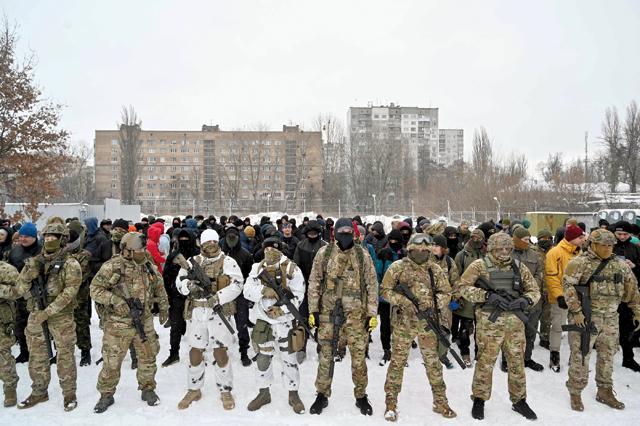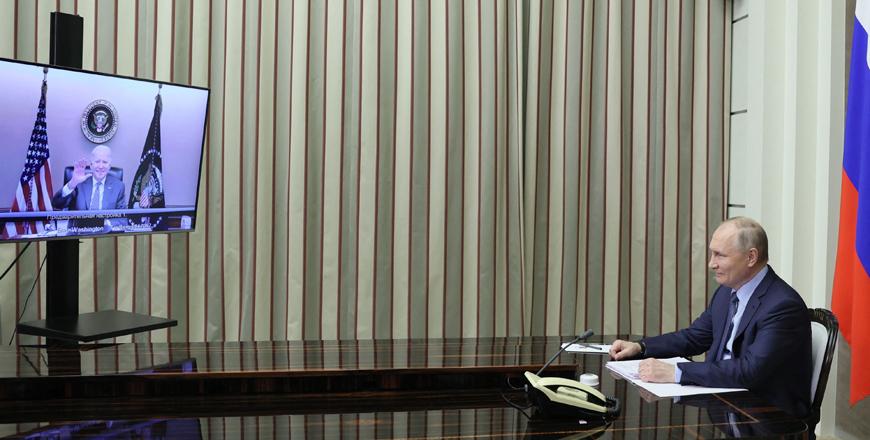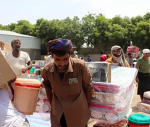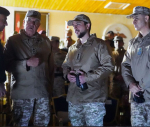You are here
EU leaders wary after Macron doesn't rule out Western troops in Ukraine
By AFP - Feb 27,2024 - Last updated at Feb 27,2024

French President Emmanuel Macron speaks during a press conference at the end of the international conference aimed at strengthening Western support for Ukraine, at the Elysee Presidential Palace in Paris, on Monday (AFP photo)
PARIS — French President Emmanuel Macron on Tuesday faced uneasy reactions from European allies and a warning from the Kremlin after he refused to rule out the dispatch of Western ground troops to Ukraine in its fight against the Russian invasion.
Macron said after a conference of European leaders on Monday that "everything that is necessary" must be done to ensure the defeat of Russia, including deploying troops.
The Kremlin warned of the "inevitability" of confrontation between NATO and Russia if troops from the alliance were deployed in the conflict, which would break a major taboo the West has so far been reluctant to challenge.
Macron hosted the conference just over two years to the day after Russia invaded Ukraine — seeking to rally greater support for Kyiv, which faces increasing battlefield challenges and dwindling munition stocks.
He painted a grim picture of Russia under President Vladimir Putin, arguing there had been a “change of posture” even in recent months that had seen a hardening of its stance both domestically and in Ukraine.
While there was “no consensus” on the sending of Western ground troops to Ukraine, “nothing should be ruled out. We will do whatever it takes to ensure that Russia cannot win this war”, Macron added.
‘No plans for combat troops’
Macron had refused to say more about France’s position, citing the need for “strategic ambiguity” but saying the issue was mentioned “among the options”.
“We are convinced that the defeat of Russia is indispensable to security and stability in Europe,” Macron said.
Slovak Prime Minister Robert Fico, accused by critics of being too cosy with Moscow, said after the meeting that there was disunity on the issue among European leaders.
“There are countries that are ready to send their own soldiers to Ukraine, there are countries that say never — Slovakia is among them — and there are countries that say that this proposal should be considered,” he said.
Prime Minister Ulf Kristersson of Sweden, which is set to join NATO, poured cold water on the idea, saying “it’s not on the cards at all for the moment”.
German Chancellor Olaf Scholz said: “What was agreed from the beginning among ourselves and with each other also applies to the future, namely that there will be no soldiers on Ukrainian soil sent there by European states or NATO states.”
Kremlin spokesman Dmitry Peskov said that if NATO troops appeared in Ukraine “we need to speak not about a possibility but of the inevitability” of confrontation.
“This is absolutely not in the interests of these countries, they should be aware of this,” he added.
A NATO official, who spoke on condition of anonymity, emphasised “there are no plans for NATO combat troops on the ground in Ukraine” despite the “unprecedented military support” from the alliance.
However, the UK issued a somewhat more circumspect reaction, with Prime Minister Rishi Sunak’s spokesman saying there were no plans for “large-scale” troop deployment to Ukraine.
‘Specific activities’
French Prime Minister Gabriel Attal on Tuesday reaffirmed Macron’s comments, saying: “You can’t rule anything out in a war.”
Macron had also taken an apparent swipe at Germany, which was mocked in the first months of the war for its relatively soft promises of military support.
“I recall that two years ago many around this table said we will offer sleeping bags and helmets and now they say we need to do more and quicker to have missiles and tanks.”
Macron argued that the hardening of Russia’s approach had been “cruelly” manifested in the death in an Arctic prison on February 16 of President Putin’s top opponent Alexei Navalny.
“Russia is adopting an attitude that is more aggressive not just in Ukraine but against us all in general.”
It is understood that any Western troops eventually sent to Ukraine would have no mandate to fight Russian forces but work on priorities outlined by Macron in his news conference, including de-mining, securing neighbouring countries such as Moldova and thwarting cyber attacks.
“We are not talking about soldiers on the front line, in combat, but about specific activities, far from the front,” said Rym Momtaz, consultant research fellow at the International Institute for Strategic Studies.
Related Articles
WASHINGTON — US President Joe Biden is maintaining pressure on Russian leader Vladimir Putin over Ukraine after announcing a small troop dep
MOSCOW — Russia said on Sunday it wants "mutually respectful" relations with the United States and denied posing a threat to Ukraine, as the
WASHINGTON — Joe Biden and Vladimir Putin held a two-hour video summit on Tuesday in which the US president said he would warn of painful sa
















